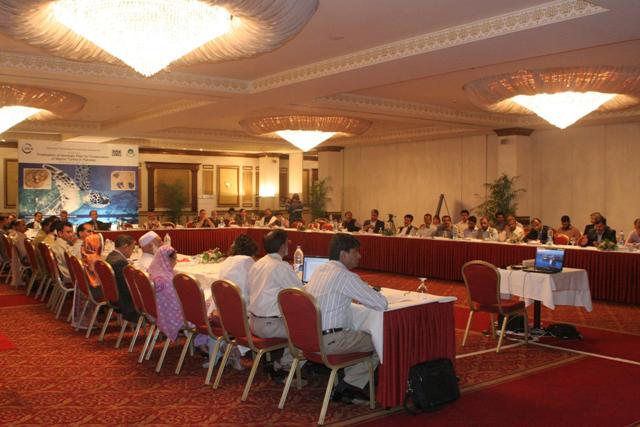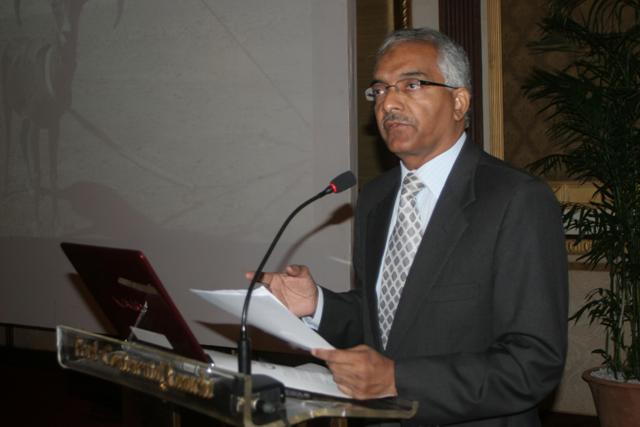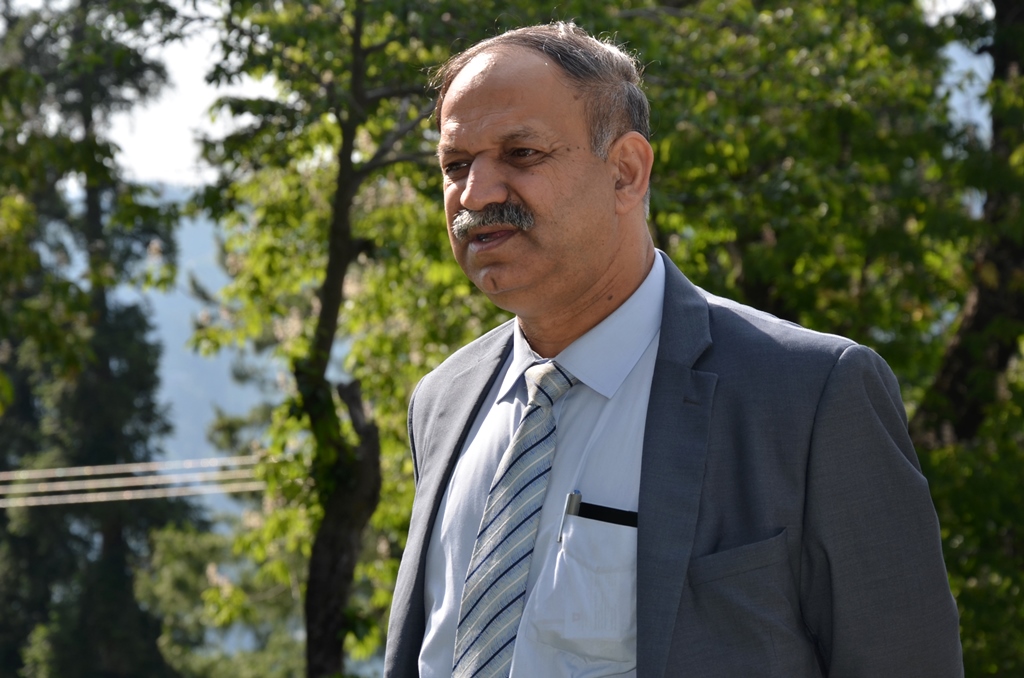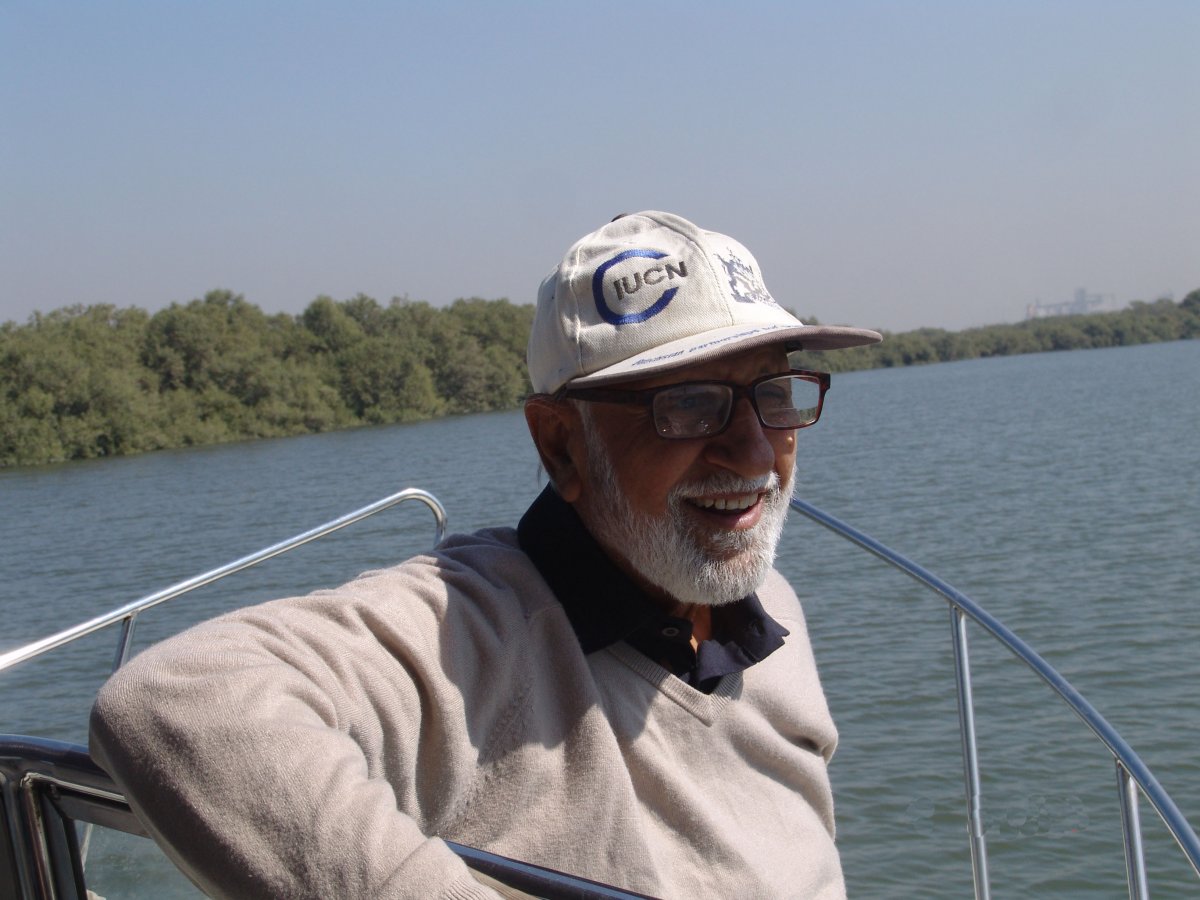Strategic Plan for Conservation of Marine Turtles in Pakistan
Karachi, November 22, 2010 IUCN Pakistan under its Balochistan Partnerships for Sustainable Development Programme inaugurated a 4-Day workshop titled: “Finalization of Strategic Plan for Conservation of Marine Turtles in Pakistan” at a local hotel in Karachi.
The main purpose of the workshop is to discuss the National Sea Turtle Conservation Strategy and to come up with recommendations for a long-term plan to conserve sea turtles along the coast of Balochistan and Sindh. It will also focus on reducing the mortality of sea turtles in fishing nets while keeping the livelihoods of the fishermen a top priority.
Dr. Nicloas Pilcher facilitated this workshop. He is the Co-Chair of IUCN Marine Turtle Specialist Group and world’s authority on sea turtle conservation and biology. The latter part of the workshop will constitute training of the fishermen in weaving the TEDs device and its demonstration. Dr. Pilcher has a PhD in marine turtle conservation from Southern Cross University, Australia. He is founder and Executive Director of the Marine Research Foundation, which implements projects leading to the conservation of marine resources throughout the SE Asian and Indo-Pacific regions. He is a member of the IUCN SSC Marine Conservation Sub Committee. He also serves on a several scientific advisory panels around the world.
In the keynote address Secretary, Environment and Alternate Energy, Government of Sindh, Mir Hussain Ali said that Pakistan used to be a leading country with its vast natural resources and biodiversity but due to lack of proper management, it has suffered huge losses to it’s coastal and marine life.
Mr. Mir Hussain Ali stated untreated and contaminated water from industrial units enters the river Indus. Most of the industrial units do not have treatment arrangements in place and the contaminated water finds it way into coastal areas, which is spoiling the breeding areas of turtles and marine life. He further mentioned that 550 MGD of untreated sewerage and industrial affluent generated out of which only 50 MGD is treated the rest goes to the seas. He mentioned various projects of Government of Sindh and Karachi City District Government, which are underway for effluent treatment and solid waste management. He hoped that the national turtle conservation strategy would go a long way in the conservation of other species. He extended his and full support to IUCN in this regard.
Dr. Pilcher said that Pakistan is signatory to the Indian Ocean South East Asian Marine Turtle Memorandum of Understanding, CMP. He mentioned that the skeleton of the Finalization of Strategic Plan for Conservation of Marine Turtles in Pakistan is based on the IOSEA MoU and also build on IUCN global strategy. He also emphasized that it is not only the responsibility of government and ngos but is the responsibility of all the members of the community. He mentioned that along with awareness, there is need for community participation. The number of species on the list of extinction is growing with passing time. He emphasized on the need to be radical in future thinking for the conservation of the turtles. He pointed out two major threats faced by the turtles i.e. threats to turtles and their habitat.
Mr. Zabardast Khan Bangash, Program Manager Balochistan Partnership for Sustainable Development mentioned that there has been lack of national strategic plan for the conservation of marine turtles. He hoped that this endeavor will be instrumental in bringing everyone on one platform. He further added that this workshop is continuation of the workshop titled: Status of Conservation and Importance of Marine Turtle Population at Local Natural and Regional Level, which was held earlier in February.
Mr. Hamid Sarfraz, Programme Coordinator, IUCN Pakistan mentioned that IUCN initiated its work with the conservation of turtles and resuming its efforts with a consolidated plan for the conservation of turtles.
The latter part of the workshop will focus on bringing experts and stakeholders to assess the economic impact from the installation of the Turtle Excluder Device (TEDs) in the shrimp trawl nets. Reduction of turtle mortality in fishing nets in Pakistan will strengthen the turtles’ ability to recover and given trawl fisheries are considered the world’s largest threat to sea turtles, the introduction of turtle excluder devices would be a positive step towards the fishery mortality issue. The workshop was widely attended by stakeholders representing government agencies, NGOs and fishermen community.




